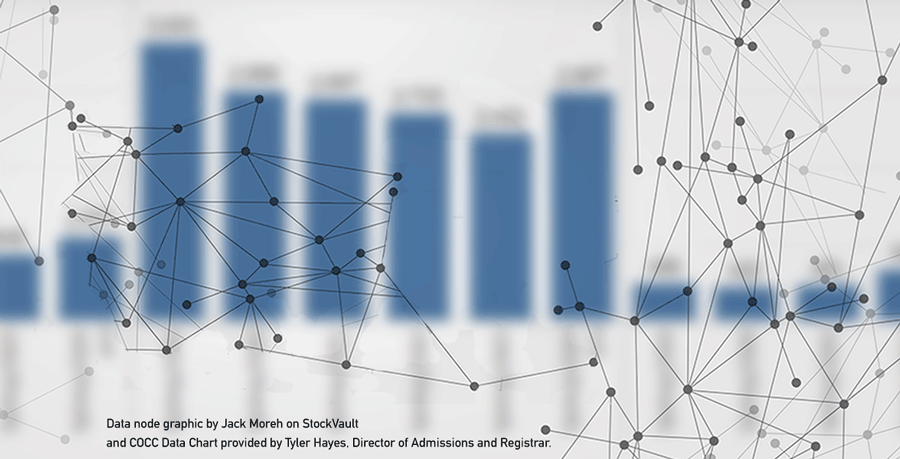With summer and fall terms at Central Oregon Community College just around the corner, questions about ethnicity and race have come up for students applying to college or updating their personal information.
COCC Administration uses ethnicity and race demographics for making informed decisions across all campuses. If a student selects “other” or skips the question, it is reflected in a digital dashboard publicly available on COCC’s website. Tyler Hayes, COCC’s Director of Admissions and Registration, says, “If students don’t make a selection, in our data it shows that there is a group of students that had no answer. When it comes to decision making and looking at our data, that provides us with more context. Students can always update that information.”
The college’s demographic categorization is defined by the National Center for Educational Statistics (NCES), a division of the U.S. Department of Education, and the Federal Government’s Office of Management and Budget (OMB)’s updated Statistical Policy Directive No. 15 (SPD 15). Hayes says “The NCES outlines how we collect data and what we report on our data, and they outline pretty clearly for us what the definitions for race and ethnicity categories should be.“
In the future, a new student enrollment system will be introduced, allowing for greater accuracy and flexibility for the college’s administration to support heritage programs. Regarding feedback, the administration receives minimal input regarding students feeling uncomfortable with the ethnicity and race questions. However, they take such feedback seriously. Positive feedback is valued as it guides improvements in the process.
When asked how they felt about the questions about race or ethnicity, students interviewed on the main campus had positive things to say.
COCC student, Paisley Rex-Hurtado, who worked at the Wikiup Hall front desk, said “I haven’t had any issues. I feel pretty comfortable being here. I am Native American and I feel very much welcomed, especially considering they have all these programs that specifically highlight Native Americans with their land acknowledgment. I haven’t had any problems with it.” Regarding the representation of Native Americans in programs, she said, “Yes, I would say they represent Native Americans pretty well. I can’t speak for the other ethnicities, but I would say yes. ”
When asked about his opinions on ethnicity demographics, student Londale Dhesi says, “For me, I sort of like answering the questions because I know that my number is going to go towards that statistic, people in the future who see that might be just that more inclined to be here.
When asked about the future of demographics and multiculturalism at COCC, Hayes said, “Well, there’s a huge emphasis on it. We have an incredible director, Christy Walker, whose work is really digging into how we can provide wraparound support for our students and she works closely with admissions so she has access to some of the data as well. Another great part about some of the dashboards we create is that we all have access to that information. The college has placed a huge emphasis on making sure that we are continuing to advance and grow that work.”
COCC’s outlook for a multicultural future with student enrollment looks promising. With improvements to the administration system coming soon, the horizon is bright for new and returning students.








